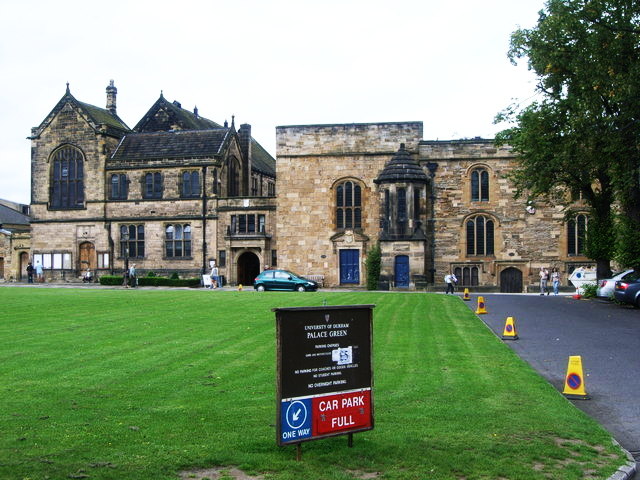Professor Ian R. Baxendale

Ian Baxendale obtained his first degree from the University of Leicester graduating with a BSc 1st class honours in Chemistry. He remained at Leicester to continue his studies pursuing a PhD under the supervision of Prof. Pavel Kocovsky investigating new Organometallic catalysts based on group 6 transition metals for stereoselective allylic substitution reactions.

 pavel kosovsky
In 1999 he moved to a postdoctoral position with Prof. Steven V. Ley at the University of Cambridge initially conducting research into Natural Product synthesis prior to entering the field of Solid Supported Reagents and Scavengers. In 2003 he was awarded a Wolfson Royal Society Fellowship. Then in 2005 he co-founded the Innovative Technology Centre (ITC) with Prof. Ley as a centre of excellence for the study and development of advanced chemical synthesis tools and methodologies where he was the centre's Director. In 2008 he was promoted to a Senior Research Associate within the Department of Chemistry at Cambridge and then in 2009 was awarded a prestigious Royal Society University Research Fellowship and become a member of the Chemistry Departments teaching faculty.
Whilst at Cambridge he was also elected a Fellow at Sidney Sussex College (2000) and soon after took over as the Head of Natural Sciences teaching and for 5 years acted as the Dean of the College.
In 2005 Prof.'s Baxendale and Ley established a spin-out company; Reaxa Ltd, as a joint venture between the University of Cambridge and Avecia plc. The company was focused upon the developed of enabling tools such as immobilised catalysts and metal scavengers for bulk scale production of high volume intermediates and APIs. In 2010 the company sold its scavenger range (QuadraPure™ and QuadraSil™ scavengers - leading technology in metal extraction and purification for pharma manufacturing) to Johnson Matthey. Then divested its EnCat™ encapsulated catalyst technology to S. Amit & Co., a Mumbai-based chemistry services provider. The remaining company assets were integrated into a new venture Yorkshire Process Technology Ltd.
In 2012 Ian moved to Durham to take up the Chair of Synthetic Chemistry as a fully tenured Professor.
His current research interests are the design and implementation of new enabling technologies such as Flow Chemical Synthesis (FCS), Synthesis Automation Methodologies (SAM), microwave reactors and immobilised reagents and scavengers to expedite complex chemical syntheses. The success of his academic career is reflected by >125 publications (H-index=36), including several reviews and book chapters, with a total of >3900 citations.
Ian's research has received considerable interest especially from within the Pharmaceutical and Agrochemical industries consequently he gives on average 20-25 teaching lectures per annum. In addition his laboratory have established a successful training scheme allowing people to visit from companies and other research organisations to perform a period of learning and development within the confines of his laboratories. This has created a network of skilled technical experts who are spreading the story and supporting the British and European chemical industry.
Furthermore, Ian acts as a scientific consultant for a number of major pharmaceutical, agrochemical and fine chemicals companies with regard to advising them upon the latest manufacturing techniques and technologies as well as effective exploitation of modern synthesis techniques for improved chemical synthesis.
pavel kosovsky
In 1999 he moved to a postdoctoral position with Prof. Steven V. Ley at the University of Cambridge initially conducting research into Natural Product synthesis prior to entering the field of Solid Supported Reagents and Scavengers. In 2003 he was awarded a Wolfson Royal Society Fellowship. Then in 2005 he co-founded the Innovative Technology Centre (ITC) with Prof. Ley as a centre of excellence for the study and development of advanced chemical synthesis tools and methodologies where he was the centre's Director. In 2008 he was promoted to a Senior Research Associate within the Department of Chemistry at Cambridge and then in 2009 was awarded a prestigious Royal Society University Research Fellowship and become a member of the Chemistry Departments teaching faculty.
Whilst at Cambridge he was also elected a Fellow at Sidney Sussex College (2000) and soon after took over as the Head of Natural Sciences teaching and for 5 years acted as the Dean of the College.
In 2005 Prof.'s Baxendale and Ley established a spin-out company; Reaxa Ltd, as a joint venture between the University of Cambridge and Avecia plc. The company was focused upon the developed of enabling tools such as immobilised catalysts and metal scavengers for bulk scale production of high volume intermediates and APIs. In 2010 the company sold its scavenger range (QuadraPure™ and QuadraSil™ scavengers - leading technology in metal extraction and purification for pharma manufacturing) to Johnson Matthey. Then divested its EnCat™ encapsulated catalyst technology to S. Amit & Co., a Mumbai-based chemistry services provider. The remaining company assets were integrated into a new venture Yorkshire Process Technology Ltd.
In 2012 Ian moved to Durham to take up the Chair of Synthetic Chemistry as a fully tenured Professor.
His current research interests are the design and implementation of new enabling technologies such as Flow Chemical Synthesis (FCS), Synthesis Automation Methodologies (SAM), microwave reactors and immobilised reagents and scavengers to expedite complex chemical syntheses. The success of his academic career is reflected by >125 publications (H-index=36), including several reviews and book chapters, with a total of >3900 citations.
Ian's research has received considerable interest especially from within the Pharmaceutical and Agrochemical industries consequently he gives on average 20-25 teaching lectures per annum. In addition his laboratory have established a successful training scheme allowing people to visit from companies and other research organisations to perform a period of learning and development within the confines of his laboratories. This has created a network of skilled technical experts who are spreading the story and supporting the British and European chemical industry.
Furthermore, Ian acts as a scientific consultant for a number of major pharmaceutical, agrochemical and fine chemicals companies with regard to advising them upon the latest manufacturing techniques and technologies as well as effective exploitation of modern synthesis techniques for improved chemical synthesis.
 pavel kosovsky
pavel kosovskyContact details:Department of ChemistryUniversity of DurhamSouth RoadDurham, DH1 3LE.United Kingdom.
Department of Chemistry, University of Durham
 Durham University, Chemistry Lab |

Research Interests
His general areas of interest are: Organic synthesis (natural products, heterocyclic and medicinal chemistry), Organometallic chemistry, Catalyst design and application, Meso flow chemistry, Microfluidics, Microwave assisted synthesis, Solid supported reagents and scavengers, and facilitated reaction optimisation using Robotics and Automation.
My primary research direction is the synthesis of biologically potent molecules which encompasses the design, development and integration of new processing techniques for their preparation and solving challenges associated with the syntheses of new pharmaceutical and agrochemical compounds. In our work we utilise the latest synthesis tools and enabling technologies such as microwave reactors, solid supported reagents and scavengers, enzymes, membrane reactors and flow chemistry platforms to facilitate the bond making sequence and expedite the purification procedure. A central aspect of our investigations is our pioneering work on flow chemical synthesis and microreactor technology as a means of improving the speed, efficiency, and safety of various chemical transformations. As a part of these studies we are attempting to devise new chemical reactions that are not inherently feasible or would be problematic under standard laboratory conditions. It is our further challenge to enhance the automation associated with these reactor devices to impart a certain level of intelligence to their function so that repetitive wasteful actions currently performed by chemists can be delegated to a machine; for example, reagent screening or reaction optimisation. We use these technologies as tools to enhance our synthetic capabilities but strongly believe in not becoming slaves to any methodology or equipment.
For those interested in our research and wishing to find out more we invite you to visit our website at:http://www.dur.ac.uk/i.r.baxendale/



Durham cathedral
Recent Selected Publications
- Baumann, M.; Baxendale, I. R. (The rapid generation of isothiocyanates in flow) Beilstein J. Org. Chem. 2013, 9,1613–1619.
- Nakayama, K.; Browne, D. L.; Baxendale, I. R.; Ley, S. V. (Studies of a Diastereoselective Electrophilic Fluorination Reaction Employing a Cryo-Flow Reactor) Synlett 2013, 24, 1298–1302.
- Baxendale, I. R.; Millia, C. J.; Brocken, L.; (Flow chemistry approaches directed at improving chemical synthesis)Green Process Synth. 2013, 2, 211–230.
- Battilocchio, C.; Guetzoyan, L.; Cervetto, C.; Mannelli, L. D. C.; Daniela Frattaroli, D.; Baxendale, I. R.; Maura, G.; Sautebin, L.; Biava, M.; Ghelardini, C.; Marcoli, M.; Ley, S. V. (Flow Synthesis and Bio-Pharmacological Studies of a P2X7 Antagonist that Shows Analgesic Activity) A.C.S. Med. Chem. Lett. 2013, 4 (8), 704–709.
- Baxendale, I. R.; Cheung, S.; Kitching, M. O.; Ley, S. V. Shearman, J. W. (The Synthesis of Neurotensin Antagonist SR 48692 for Prostate Cancer Research) Bioorg. Med. Chem. 2013, 21, 4378–4387.
- Battilocchio, C.; Deadman, B. J.; Nikbin N.; Kitching, M. O.; Baxendale, I. R.; Ley, S. V. (A Machine-Assisted Flow Synthesis of SR48692: a Probe for the Investigation of Neurotensin Receptor-1) Chem. Eur. J. 2013, 19, 7917–7930.
- Fernández, A.; Levine, Z. G.; Baumann, M.; Sulzer-Mossé, S.; Sparr, C.; Schläger, S.; Metzger, A.; Baxendale, I. R.; Ley, S. V. (Synthesis of (–)-Hennoxazole A: Integrating Batch and Flow Chemistry Methods) Synlett 2013, 514–518.
- Baxendale, I. R. (The integration of flow reactors into synthetic organic chemistry) J. Chem. Technol. Biotechnol.2013, 88, 519–552.
- Deadman, B. J. Hopkin, M. D.; Baxendale, I. R.; Ley, S. V. (The Synthesis of Bcr-Abl Inhibiting Anticancer Pharmaceutical Agents Imatinib, Nilotinib and Dasatinib) Org. Biomol. Chem. 2013, 11, 1766–1800.
- Hopkin, M. D.; Baxendale, I. R.; Ley, S. V. (An Expeditious Synthesis of Imatinib and Analogues Utilising Flow Chemistry Methods) Org. Biomol. Chem. 2013, 11, 1822–1839.
- Guetzoyan,L.; Nikbin,N.; Baxendale,I. R.; Ley S. V. (Flow Chemistry Synthesis of Zolpidem, Alpidem and other GABAA Agonists and their Biological Evaluation through the use of In-line Frontal Affinity Chromatography)Chem. Sci. 2013, 4, 764–769.











No comments:
Post a Comment